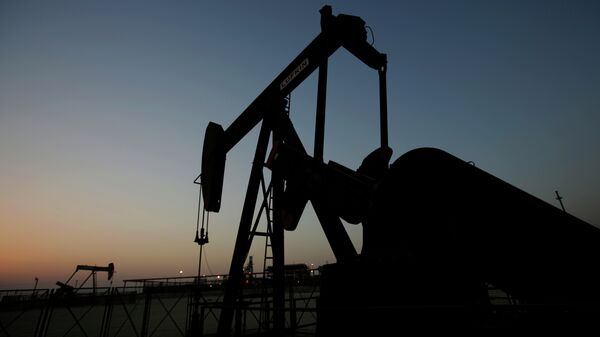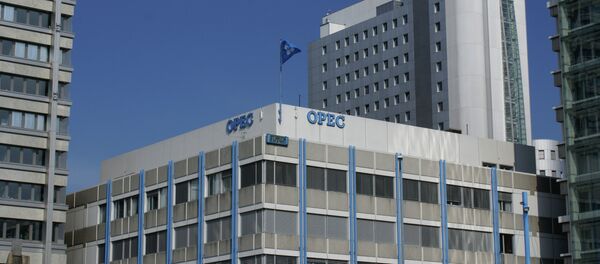VIENNA (Sputnik) – Saudi Minister of Energy, Industry and Mineral Resources Khalid Falih described the 169th conference of the cartel as "positive".
According to acting Secretary-General Abdalla Salem Badri, OPEC remains a "viable organization that reacts accordingly to current market conditions."
OIL PRODUCTION QUOTAS
Also before the meeting, on Thursday, Iraq's Deputy Oil Minister Fayyad Nima said that OPEC would discuss capping oil production at 32.4 million barrels per day, instead of the current 30-million-barrel limit, which the organization has not been upholding in recent years.
Shortly after the conference, Iranian Minister of Petroleum Bijan Namdar Zanganeh said that OPEC did not discuss the possibility of introducing quotas for oil production for several member states of the cartel.
"I said that the ceiling [limiting of oil production by OPEC members] without country quotas does not mean anything, and OPEC itself without country quotas is nothing. But, as I said, this was not the right time to finalize this discussion. Time is needed to discuss this and all OPEC member states should accept the creation of this model. We used to have it once, and I do not know why OPEC countries decided not to have the system of state quotas," Zanganeh told reporters.
Following the meeting, Badri said that OPEC members need time to assess the global oil output and make a decision on potential production level freezes within the organization.
OPEC’s current oil production level is currently at a reasonable level, however, an oil price slump is still possible in the future, Badri said, adding that "OPEC is doing its best for nothing like that to happen."
NEW SECRETARY-GENERAL
Following the meeting, the organization announced the appointment of its new head, who will replace acting OPEC Secretary-General Badri.
Barkindo is set to serve as OPEC’s secretary-general for a period of three years.
Following the announcement, the newly-elected head of the organization said that the issue of introduction of the country oil output quotas for members of the Organization should certainly be discussed.
"We intend to strengthen our relations with non-OPEC and particularly Russia. I think there is a consensus among ministers at the conference that the dialogue and cooperation between us and the non-OPEC community is to be strengthened. That would be one of the priorities to go forward," Barkindo added.
OTHER ANNOUNCEMENTS
Following the meeting, OPEC made a statement on the decision it made in regard to the re-admission of Gabon.
"The Conference considered Gabon’s request to rejoin the Organization, and decided to approve its admission with effect from 1st July 2016," the statement read.
In the statement, OPEC called on both its members and oil producers, who are not a part of the cartel, to coordinate actions to ensure stability in the global oil markets.
The conference also decided to hold the next meeting of the organization on November 30.






